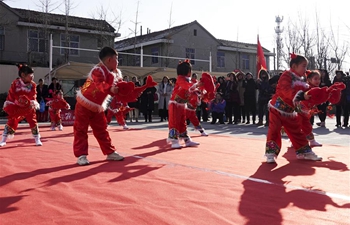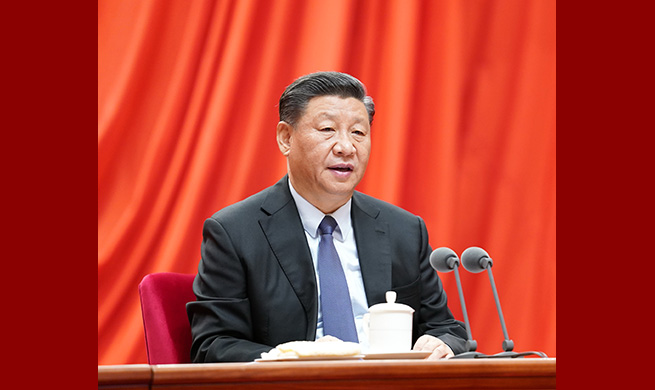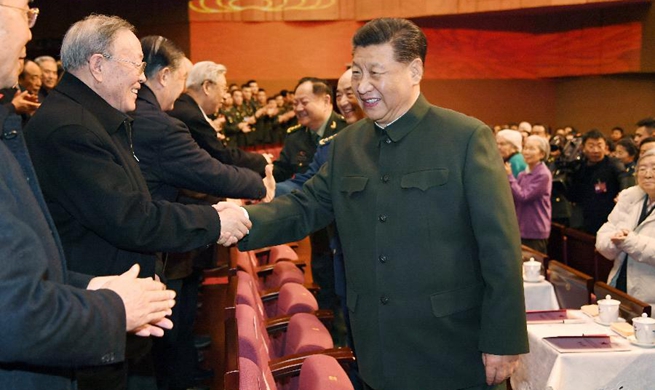TOKYO, Jan. 14 (Xinhua) -- Japanese Deputy Prime Minister Taro Aso on Tuesday apologized for the remarks he made that have been criticized for ignoring the nation's ethnic minorities including the indigenous Ainu group.
Aso, who doubles as finance minister, said at an event in his home constituency in Fukuoka Prefecture a day earlier, that Japan as a country has the longest history of any other with one language and one ethnic group.
"No country but this one has lasted 2,000 years with one language, one ethnic group and one dynasty," said Aso.
Aso, who has come under fire for his latest gaffe, made the remark despite having just hailed the success in the Rugby World Cup last fall of Japan's ethnically diverse rugby team.
"If I made a remark that has caused misunderstanding, I have to take care of my way of saying and correct what I said," Aso told a press briefing on the matter Tuesday.
He said that he had meant to say that Japan's history had been a lengthy one without major migration movement or occupation involving other ethnic groups.
His remarks made Monday, however, have been criticized for running utterly contrary to the government's own push last year to recognize the Ainu ethnic group in northern Japan as indigenous people of the nation, with its own distinct language and ethnicity.
In May last year, Japan implemented a legislation recognizing the Ainu ethnic group in northern Japan as an indigenous people of the nation, with the new law aimed at supporting the culture of the Ainu people through state-backed financial assistance at central and local levels and promoting the Ainu culture and heritage.
Stipulating for the first time that the Ainu group are an indigenous people in Japan, the law, in part, was aimed at better preserving the Ainu culture that the group has struggled to maintain since Japan introduced its assimilationist law in 1899 that saw the groups' centuries-old cultural heritage forcibly eroded.
While the law was abolished in 1997 and another one introduced to purportedly protect the Ainu culture, it fell short in many respects, including not stipulating that the Ainu people were an indigenous people in Japan.
The new law has sought to help the Ainu people maintain their traditional ways and a deregulation of existing laws allows them to collect wood from national forests and catch fish in rivers, in their time-honored, traditional ways.
The indigenous group has long-been maligned and suffered from discrimination in Japan, although Aso maintained his controversial remarks were not intended to undermine the government's current stance on the group.
"I have no intention to deny the government's position by what I said," Aso said on Tuesday, when quizzed as to whether his remarks were in contradiction to the law regarding the Ainu people.













